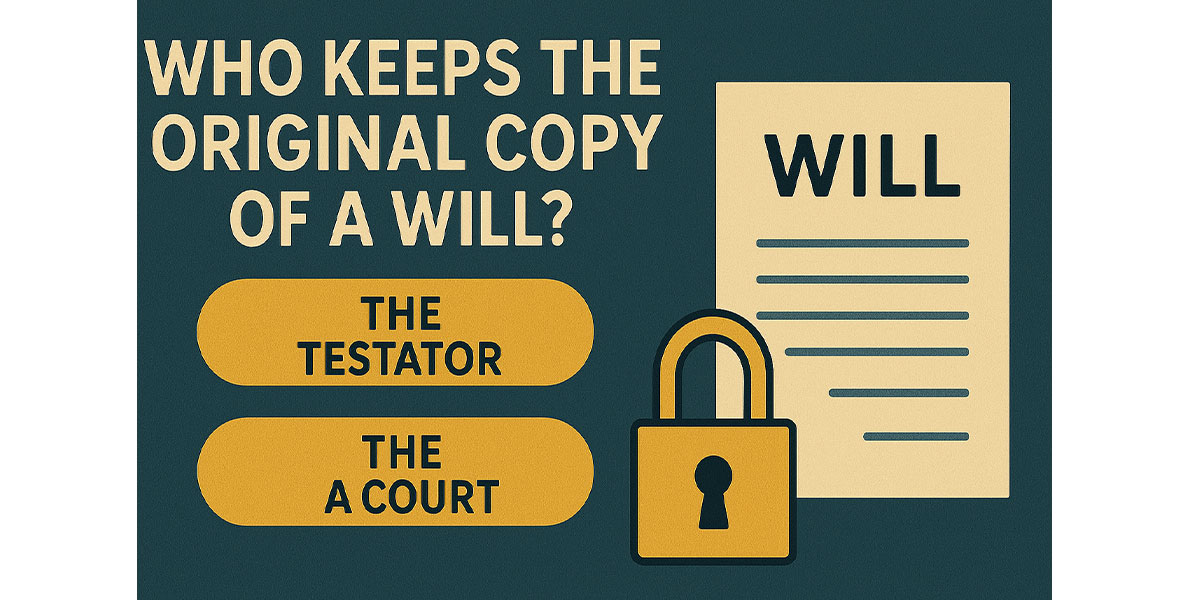Determining Custody of the Original Will in New York
When it comes to estate planning, a crucial consideration often overlooked is the question of who should retain the original will in New York. The importance of having the original document readily available cannot be overstated, as failure to produce it can lead to complications and unintended consequences during estate administration.
Significance of the Original Will
In New York, probate courts typically mandate the presentation of the original, signed, and witnessed will to initiate the estate administration process. In the absence of the original, legal obstacles may arise, necessitating additional steps such as affidavits or evidentiary hearings to establish the will’s validity.
To circumvent such challenges, it is imperative to securely store the original will in a location that is both safe and easily accessible. The question then arises: who should be entrusted with this responsibility?
Options for Will Storage in New York
Individuals in New York commonly opt for the following methods to safeguard the original copy of their will:
- The Testator (the individual creating the will)
- An Estate Planning Attorney
- A Family Member or Trusted Individual
- A Safe Deposit Box
- The Surrogate’s Court
Personal Will Storage
Many individuals choose to retain the original will at home for immediate access. While convenient, this approach carries inherent risks such as loss due to fire, theft, or other unforeseen circumstances. If this method is preferred, utilizing a fireproof safe and informing a trusted individual of its location and access details is crucial.
Additionally, maintaining an updated list of essential documents and informing the executor about the will’s whereabouts is recommended. Understanding executor responsibilities is essential, and further information can be found on our page regarding Probate in New York.
Will Storage with an Attorney
Another prevalent choice is entrusting the original will to an estate planning lawyer. This method is often deemed the most secure, as attorneys possess secure storage facilities and expertise in document management. At Morgan Legal Group, we offer secure will storage services to ensure our clients’ documents are preserved and easily accessible when required.
Furthermore, attorneys typically maintain digital copies and related documents, such as trusts, powers of attorney, or health care proxies, in a centralized location.
Designating a Trusted Individual
Alternatively, individuals may opt to entrust the original will to a family member, friend, or designated executor. While feasible in trustworthy relationships, this approach introduces potential risks such as loss, misplacement, or disputes among beneficiaries. If this route is chosen, selecting a reliable individual and appointing them as the executor in the will is advisable.
Safe Deposit Boxes and Access Challenges
Some individuals opt to store their will in a bank safe deposit box for enhanced security. However, posthumous access to the box can pose challenges, as New York banks may require a court order for access. This creates a dilemma, as the court may need the will to appoint an executor initially. One workaround is co-leasing the box with a trusted individual.
Depositing the Will with the Surrogate’s Court
In New York, individuals have the option to file their will with the Surrogate’s Court in their respective county. While less common, this approach provides an official, court-maintained version of the document. It is important to note that this method incurs a nominal filing fee and may lack flexibility for future modifications. Additional information can be found on the official NY Courts website.
Addressing the Loss of the Original Will
If the original will is unaccounted for upon the testator’s demise, New York law presumes the document was revoked unless proven otherwise. This presumption can significantly impact the estate’s outcome, potentially leading to protracted and costly probate litigation. To mitigate such risks, ensuring the secure storage and known whereabouts of the original will is imperative.




